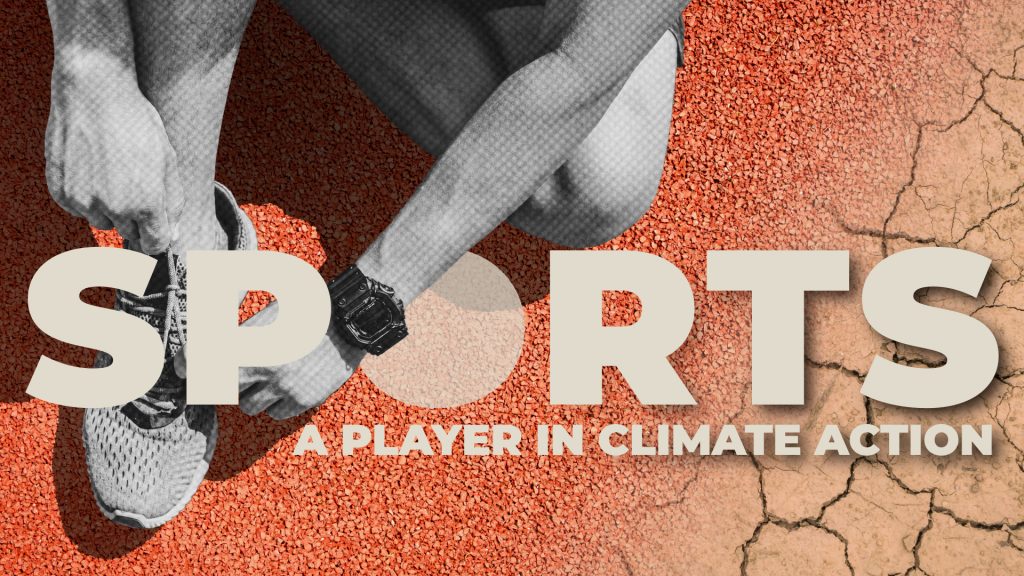The impacts of climate change are being felt across every aspect of society, and the world of sports is no exception. Rising temperatures, extreme weather events, and environmental degradation are disrupting training schedules, damaging infrastructure, and affecting athletes’ performance. At the same time, the sports sector itself contributes approximately 1% of annual global greenhouse gas emissions. With its broad appeal and influence, sport holds unique potential to lead by example and mobilize collective action for the planet.
“Sport reminds us of our collective ability to overcome the seemingly impossible.” – Patricia Espinosa, former Executive Secretary of UN Climate Change.
Recognizing this, the UNFCCC Sports for Climate Action Framework was launched in 2018 to guide environmental sustainability efforts within the sports sector and leverage its global reach to raise awareness and drive climate action. Towards this goal, two new e-learning courses have been launched as part of the Sports for Climate Action e-learning series. Developed in partnership between UNITAR (through the UN CC:Learn programme) and UN Climate Change (UNFCCC), and powered by adidas, the courses aim to empower individuals and sports organizations to take meaningful climate action – both on and off the field.
The first course, Introduction to Sports for Climate Action, is designed for anyone interested in understanding how sports and climate change intersect. It explores how sports contribute to climate change, how they are affected by it, and what actions can be taken to build a greener and more resilient sports sector. Comprising four short modules, the course takes about 1 hour and 20 minutes to complete, using interactive lessons, videos, quizzes, and practical activities to guide learners through the essentials.
The second course, Sports for Climate Action, takes the learning further. Targeted primarily at staff of sports organizations, it builds on the foundational knowledge from the introductory course and provides actionable strategies for integrating climate considerations into operations, business planning, and stakeholder engagement. With five in-depth modules, the course takes approximately 4 hours to complete and features real-world case studies, interviews with industry professionals, and practical exercises to help learners apply what they’ve learned.
Both courses are fully online, self-paced, and free of charge. Participants who successfully complete them will receive an official certificate of completion from the United Nations – a valuable credential for professionals and organizations looking to lead the way in climate action within the sports sector.
Whether you’re a coach, event organizer, athlete, fan, or decision-maker in a sports organization, these courses offer essential insights and tools to help you make a difference. By taking part, you’ll not only increase your own knowledge, but also contribute to a growing global movement for climate action and resilience in sports.
Ready to take action? Take the courses today.

